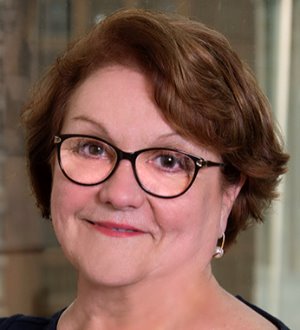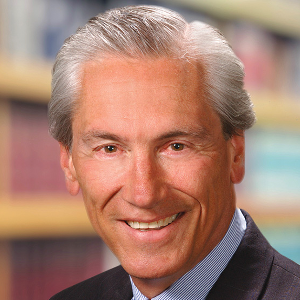The world has changed a lot in the last few years, with the international financial crisis, and more recently, with the commodities crisis. Africa is no exception. Countries like Nigeria and Angola, once two of the fastest growing economies in Africa, have been struggling since the price of oil came down to record lows.
Although the commodity crisis affected most countries, the context and reasons for the current difficulties across the continent are quite varied. Countries and regions in Africa are at different stages of maturity and therefore facing diverse challenges.
There is a common lack of diversification in economies that have been heavily dependent on the oil and gas industry. For some of these countries, including Angola, the need to diversify shifted from being necessary to becoming crucial. A recent International Monetary Fund (IMF) loan might be a good catalyst for reforms in several sectors of the Angolan economy, such as taxation and public procurement, and for transparency and other structural reforms and measures in order to boost the private sector and reduce the country’s dependence on oil (which currently represents 95 percent of government revenues).
For Mozambique, the oil and gas industry is just starting up, with recent discoveries of massive natural gas reserves in the north of the country, such as Pemba in the Rovuma basin. Although Mozambique traditionally has a more diversified economy, and as of yet does not suffer from the “Dutch Disease,” or the apparent causal relationship between the increase in the economic development of a specific sector (for example, natural resources) and a decline in other sectors (like the manufacturing sector or agriculture). It is also lacking major structural reforms in several sectors.
There is a common lack of diversification in economies that have been heavily dependent on the oil and gas industry.
After a period of political stability, economic growth, hope, and optimism, Mozambique, like many other developing countries, is going through difficult times. According to the World Economic Outlook Report, IMF projects maximum growth of only 6 percent—he lowest in recent years. These forecasts are likely to be adjusted due to undisclosed international loans of more than $1 billion. According to some organizations, this year’s growth will be between 3 percent and 4.8 percent.
Beyond this public debt crisis, political instability—caused by the growing armed conflict between Frelimo, the party in power since 1975, and the opposition Renamo—is creating discomfort for internal and external players and having a negative impact on private investment.
This, along with the fall in commodity prices, has had several consequences for the Mozambican economy. One such consequence started with setback and divestment in the coal sector, which caused major losses for several investors, such as Rio Tinto and Brazilian Vale do Rio Doce, and continued with the delay in final investment decisions in some planned mega-projects, like the LNG project in the north of the country.
Investors have been extra careful before moving forward with their investments, trying to mitigate and diversify their risks by, for example, bringing partners on board or even selling part of their participating interests in their assets in Mozambique. These setbacks inevitably have an impact on the rest of the economic sectors and on the development of the country.
However, with challenging times also come great opportunities. Although the commodities crisis is not expected to last forever, these developing countries will certainly have to adjust to the new reality. African markets like Mozambique will have to change their growth patterns and development models. Hopefully, the international markets will stabilize and create better conditions for the ongoing growth of countries like Angola or Mozambique. If the conjuncture develops in a positive manner in Mozambique, it is expected that delayed major projects in the energy and infrastructure sectors will finally happen sometime this year or during 2017, changing the country’s situation forever.
Projects involving infrastructures should still be seen as a must for investors in Africa. There is no doubt that Lusophone Africa—despite the international macroeconomic context and respective impact in the local economies—continues to show great potential and high-level growth.
In Mozambique, the country benefits from a strategic location as a gateway to the Southern African Development Community (SADC), which brings together around 250 million consumers. It is also a country that is still seen as a success story among the new emerging African economies, as it is an important target for foreign investment and trade, especially because of its potential as a supplier of energy to the region.
There has been progressive interest in the Mozambique market, with investors creating major business opportunities in several sectors. It is a country with abundant natural resources and its hydroelectric potential, natural gas reserves, coal, and minerals (gold, precious stones, titanium, and bauxite, among others) stand out. It has more than 1,500 miles of coastline that provides extensive fishery resources and is key to its principal source of exports: the developing aluminum industry.
This climate has attracted a growing number of multinationals seeking to exploit the country’s mineral resources and associated activities, and this creates abundant opportunities and constitutes a very interesting platform for investors. The country is taking huge strides towards becoming one of the world’s principal energy suppliers. Agriculture, fishery, construction and public works, transport (ports, airports, bridges, railways, roads, etc.), communication, and tourism will also continue to grow and represent great investment opportunities.
This climate has attracted a growing number of multinationals seeking to exploit the country’s mineral resources and associated activities, and this creates abundant opportunities and constitutes a very interesting platform for investors.
Nevertheless, it is important that, in the next few years, these countries benefit from the lessons learned from recent setbacks, such as the confirmation that African markets (i) do not control the international commodities markets and are thus subject to its fluctuations; (ii) should not depend on one single economic sector, and therefore must swiftly diversify their economies; and (iii) should start to optimize other plentiful natural resources, such as agriculture, water, and renewables, among others.
Angola and Mozambique will hopefully continue their development process, which has to be translated into strengthening infrastructures, economic consolidation, and the restructuring of the legal system and the public sector together with the development of education and professional training. Everything points to these areas continuing to be at the core of development and they will, in turn, allow a greater development of the private sector.




























